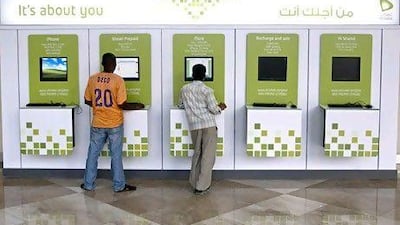The other morning, I saw an Etisalat advertisement saying: "The New Laws of Business Success - Law # 1: followers plan in quarters, leaders in twelfths."
This ad contains brilliant leadership insights.
Regional business focus and the relentless pressure for quarterly results do not always unite. This is a tough challenge for time-weathered executives to understand, as the cadence of their lives revolves around the quarterly cycle of earnings calls and fiscal projections. Yet in the GCC, many of the leading companies have visions that are not limited to these time checks on the balance sheet.
This insight is not suggesting that leaders abandon fiscal rigour. Rather, it is highlighting that performance output is accomplished in the months, not the quarter. Or you could even argue that true performance is accomplished weekly.
I find the bi-annual performance review process detrimental to business performance. Beyond the questionable quality of the performance dialogue, many leaders hold all of their performance input and feedback until the corporate schedule check point. The alarm sounds because if performance has deviated from plan, then half a year has already passed.
So, what is the right rhythm for leaders to follow for performance review and input? Should it be a quarterly review, such as on Wall Street, or even a monthly assessment, such as Etisalat espoused in its ad?
The more frequent the reviews, the greater value they bring to the business. The following scenarios demonstrate the practicality of regularity in leadership.
In a bi-annual cycle, the time lost is six months, leaving a 50 per cent recovery period.
In a quarterly cycle, the time lost is three months, leaving a potential 75 per cent recovery period.
In a monthly cycle, the time lost is only one month, making the recovery period manageable.
In a weekly cycle, the lost time is only five days, practically integrating recovery into normal operations.
I am an ardent supporter of 52 - that is, the weekly leadership cycle for performance review, input and enhancement. To highlight this, Etisalat's ad should have read: "Followers monitor performance in quarters, leaders in 52nds."
Here is a tip on how leaders can increase the effectiveness of performance, making it synergistic with weekly leadership. It is called the diary of the second.
A leader's 10-hour workday comprises 36,000 seconds. During these seconds, leaders regularly observe their employees' performance but, unfortunately, because of the speed of the day and number of observations being made, these seconds are overlooked, resulting in missed performance enhancement.
Of course, it is impossible to address each second. But what every leader should do is to keep a small diary to be able quickly to note these one-second observations. Then on a weekly basis, back to 52, the leader needs to review the "diary of the second", making note of the performance themes and having feed-forward conversations with employees to improve performance. As opposed to feedback, which looks backwards, feed-forward conversations are more readily accepted as they are about future performance and aiding with success.
As the Etisalat ad highlighted, the current review frequency is inadequate. Review frequency is one variable that leaders can control and leverage to shape performance results. Become a 52 leader.
Tommy Weir, an authority on fast-growth and emerging-market leadership, an adviser and author of The CEO Shift, is the managing director of the Emerging Markets Leadership Center

